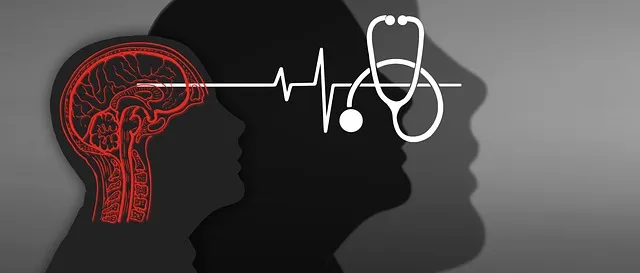Kaiser Permanente behavioral health services in Golden receives high praise for its mental wellness group facilitation, emphasizing community building and skill development. Trained facilitators create safe spaces using Mind Over Matter principles to guide activities enhancing emotional well-being and coping strategy acquisition. This holistic approach, reflected in positive reviews, builds supportive networks that extend beyond the group setting through shared experiences and empathy fostering.
- Understanding Mental Wellness Group Facilitation
- Kaiser Permanente Behavioral Health Services: An Overview
- Effective Techniques for Group Facilitation
- Golden Rules for Successful Mental Health Support Groups
Understanding Mental Wellness Group Facilitation

Mental wellness group facilitation is a specialized skill set that empowers individuals to support their peers through shared experiences and challenges. It’s a dynamic process where facilitators, often trained in Kaiser Permanente behavioral health services reviews Golden, create a safe and supportive environment for open dialogue and coping skills development. This approach leverages the power of community, fostering empathy building strategies among group members.
By adhering to Mind Over Matter principles, these facilitators guide participants through various activities aimed at enhancing emotional well-being. They help individuals navigate difficult topics, share personal stories, and learn from one another, ultimately strengthening their coping mechanisms. This collective experience is transformative, offering a network of support that extends beyond the group setting, as evidenced by numerous positive Kaiser Permanente behavioral health services reviews Golden.
Kaiser Permanente Behavioral Health Services: An Overview

Kaiser Permanente Behavioral Health Services stands out for its comprehensive approach to mental wellness support, as evidenced by numerous positive reviews in Golden and beyond. The organization offers a diverse range of services designed to cater to various psychological needs, from individual therapy sessions to group facilitation techniques aimed at fostering community and coping skills development.
Their experienced facilitators employ innovative conflict resolution techniques, ensuring a safe and supportive environment where individuals can explore their mental wellness journeys collectively. By integrating these techniques into group settings, Kaiser Permanente enhances the overall therapeutic experience, making it accessible and effective for those seeking to improve their mental health and learn valuable coping strategies.
Effective Techniques for Group Facilitation

Effective group facilitation is key to fostering a supportive environment for mental wellness discussions, and several techniques have proven beneficial in this context. One powerful approach is utilizing interactive activities that encourage active participation from all members. These can range from simple icebreakers designed to ease tension and foster connections to more structured exercises focused on specific skills like communication or problem-solving. For instance, role-playing scenarios can help individuals practice coping strategies in a safe setting.
Additionally, incorporating cultural competency into facilitation ensures inclusivity and respect for diverse backgrounds. Trained healthcare providers with knowledge of Cultural Competency Training can adapt their approaches to align with different cultural perspectives, enhancing the group’s overall comfort and engagement. This sensitivity is crucial when addressing sensitive topics like stress management and depression prevention, where understanding cultural nuances can significantly impact the effectiveness of interventions.
Golden Rules for Successful Mental Health Support Groups

Creating a supportive environment is paramount when facilitating mental health support groups. Much like Kaiser Permanente behavioral health services reviews highlight the importance of individualized care, group facilitators must tailor their approach to cater to diverse needs. Establishing clear ground rules, ensuring confidentiality, and fostering an atmosphere of non-judgement are essential for building trust among members. These Golden Rules create a safe space where participants feel empowered to share their experiences and support one another.
Encouraging active participation while promoting self-reflection is crucial. Facilitators can incorporate interactive activities, such as guided discussions on topics like burnout prevention strategies for healthcare providers or self-esteem improvement, to engage members. By balancing structured sessions with opportunities for organic sharing, groups can effectively navigate challenging conversations while cultivating a sense of community. These techniques not only enhance emotional well-being but also equip participants with valuable tools for navigating life’s challenges.
Mental wellness group facilitation plays a vital role in supporting individuals through shared experiences and peer-to-peer support. As evidenced by Kaiser Permanente behavioral health services reviews, effective techniques like active listening, structured agendas, and fostering a safe space are key to successful group sessions. The “Golden Rules” outlined in this article provide a comprehensive framework for facilitators, ensuring supportive environments that encourage growth and healing. By adopting these practices, mental health support groups can truly revolutionize the way we navigate and overcome challenges together.






